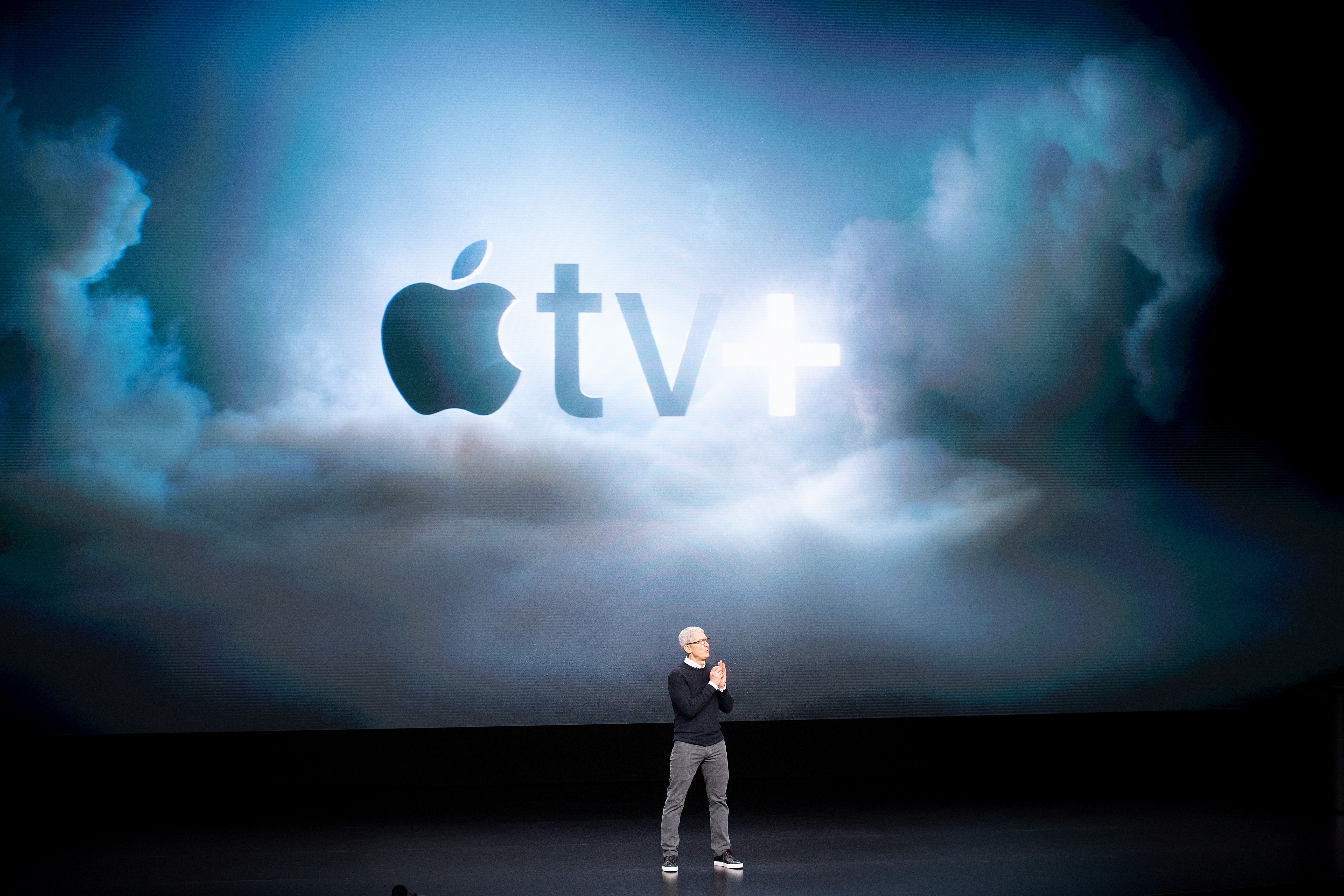The daily business briefing: March 26, 2019
Apple unveils its new streaming video service, Michael Avenatti is charged with trying to extort millions from Nike, and more


1. Apple announces streaming video service
Apple unveiled its new streaming service, a credit card, and a news subscription service Monday at its Cupertino, California, headquarters. The streaming platform, AppleTV+, will feature content from Oprah, Stephen Spielberg, Sesame Street, and dozens more big-name creators. The service is set to launch this fall, but prices were not immediately announced. The new Apple Card is a fee-free digital credit platform where users earn 2 percent cash back on all Apple Pay purchases. Customers can access the card via the iPhone Wallet app or with a physical titanium card. The new expansion of Apple News will offer content from more than 300 magazines for $9.99 per month.
2. Michael Avenatti charged with trying to extort millions from Nike
FBI agents on Monday arrested Michael Avenatti, Stormy Daniels' former lawyer in her legal battle with President Trump, on charges that he tried to extort $20 million from Nike by threatening to damage the company with negative publicity. Avenatti allegedly told Nike he had evidence its employees funneled money to the families of star high school basketball players and would go public with the information unless the athletic apparel maker met his demands. Geoffrey S. Berman, the United States Attorney in Manhattan, described the actions as a "shakedown." Avenatti, 48, also was charged with embezzling a client's money and defrauding a bank. Avenatti said when the evidence in the case is out he "will be fully exonerated and justice will be done."
The Week
Escape your echo chamber. Get the facts behind the news, plus analysis from multiple perspectives.

Sign up for The Week's Free Newsletters
From our morning news briefing to a weekly Good News Newsletter, get the best of The Week delivered directly to your inbox.
From our morning news briefing to a weekly Good News Newsletter, get the best of The Week delivered directly to your inbox.
3. British lawmakers seize control in Brexit process
British lawmakers voted Monday night to take control of the parliamentary timetable on Wednesday, giving them the opportunity to vote on several alternatives to Prime Minister Theresa May's Brexit deal. The amendment, put forward by a member of May's Conservative Party, passed 329 to 302. Alternatives to May's plan include leaving the European Union without a deal, extending the country's departure, and revoking Article 50 to remain in the EU. Last week, the EU agreed to postpone Brexit, originally set for March 29, until May 22 if British lawmakers agree to May's twice-rejected withdrawal deal. Otherwise, the EU will extend the delay only to April 12. Earlier Monday, May said she did not have enough support to win a third vote.
4. Airbus seals $34 billion order from China
Airbus shares rose by 1.9 percent early Tuesday after China announced it would buy 300 planes from the European company in a deal worth about $34 billion. The record Airbus order, which matched in price a previous Chinese purchase from Boeing, was revealed as Chinese President Xi Jinping made a state visit to France. French President Emmanuel Macron said the two countries want a "strong Euro-Chinese partnership, based on clear, strict, and ambitious rules." Citigroup said it was keeping its "buy" rating for Airbus. "China has been taking about 20-25 percent of Airbus production per year, and given the A320 family is sold out at announced production rates out to 2024/25, we believe this increases the probability of Airbus moving to a production rate of 70 per month," wrote Citigroup.
A free daily email with the biggest news stories of the day – and the best features from TheWeek.com
5. Samsung warns of disappointing 1st-quarter earnings
Samsung Electronics warned Tuesday that slumping prices for chips and LCD screens would hurt its first-quarter financial results. The South Korean electronics giant attributed the looming worse-than-expected quarter to "weakening overall demand" for its products, the latest sign of cooling demand for smartphones and other tech gadgets more broadly. Smartphone shipments fell by 7 percent worldwide in the fourth quarter as consumers held onto their old phones longer due to a widespread perception that new models don't offer big enough improvements to justify the expense of upgrading.
Harold Maass is a contributing editor at The Week. He has been writing for The Week since the 2001 debut of the U.S. print edition and served as editor of TheWeek.com when it launched in 2008. Harold started his career as a newspaper reporter in South Florida and Haiti. He has previously worked for a variety of news outlets, including The Miami Herald, ABC News and Fox News, and for several years wrote a daily roundup of financial news for The Week and Yahoo Finance.
-
 Wilde Cambridge: home-away-from-home in a prime city spot
Wilde Cambridge: home-away-from-home in a prime city spotThe Week Recommends This laid-back aparthotel is the perfect base for a weekend of exploring
-
 The best alcohol-free alternatives for Dry January
The best alcohol-free alternatives for Dry JanuaryThe Week Recommends Whether emerging from a boozy Christmas, or seeking a change in 2026, here are some of the best non-alcoholic beers, wines and spirits to enjoy
-
 A lemon-shaped exoplanet is squeezing what we know about planet formation
A lemon-shaped exoplanet is squeezing what we know about planet formationUnder the radar It may be made from a former star
-
 How Bulgaria’s government fell amid mass protests
How Bulgaria’s government fell amid mass protestsThe Explainer The country’s prime minister resigned as part of the fallout
-
 Femicide: Italy’s newest crime
Femicide: Italy’s newest crimeThe Explainer Landmark law to criminalise murder of a woman as an ‘act of hatred’ or ‘subjugation’ but critics say Italy is still deeply patriarchal
-
 Brazil’s Bolsonaro behind bars after appeals run out
Brazil’s Bolsonaro behind bars after appeals run outSpeed Read He will serve 27 years in prison
-
 Americans traveling abroad face renewed criticism in the Trump era
Americans traveling abroad face renewed criticism in the Trump eraThe Explainer Some of Trump’s behavior has Americans being questioned
-
 Nigeria confused by Trump invasion threat
Nigeria confused by Trump invasion threatSpeed Read Trump has claimed the country is persecuting Christians
-
 Sanae Takaichi: Japan’s Iron Lady set to be the country’s first woman prime minister
Sanae Takaichi: Japan’s Iron Lady set to be the country’s first woman prime ministerIn the Spotlight Takaichi is a member of Japan’s conservative, nationalist Liberal Democratic Party
-
 Russia is ‘helping China’ prepare for an invasion of Taiwan
Russia is ‘helping China’ prepare for an invasion of TaiwanIn the Spotlight Russia is reportedly allowing China access to military training
-
 Interpol arrests hundreds in Africa-wide sextortion crackdown
Interpol arrests hundreds in Africa-wide sextortion crackdownIN THE SPOTLIGHT A series of stings disrupts major cybercrime operations as law enforcement estimates millions in losses from schemes designed to prey on lonely users
